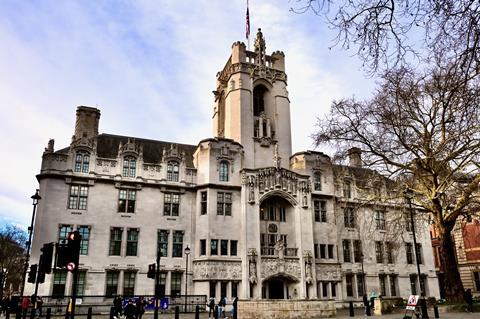The extradition to the US of a man accused of insider trading has been quashed by the Supreme Court in a ‘landmark judgment’ after the court itself granted permission to appeal.
The appeal centred on the definition of an ‘extradition offence’ and the operation of the double criminality rule in section 137 of the Extradition Act 2003.
The US sought the extradition of Joseph El-Khouri, a dual UK and Lebanese national living in the UK, who it accused of insider trading. The judgment, in El-Khouri v Government of the United States of America, said the conduct alleged against El-Khouri all took place outside the US, is not alleged to have occurred on a market regulated in the US, nor was the professional intermediary allegedly relied on by El-Khouri within the US when the alleged dealing occurred.
Lord Lloyd-Jones and Lord Leggatt, in joint judgment, with whom Lord Reed, Lord Briggs and Lord Stephens agreed, said it was ‘essential to correct an interpretation of what parliament enacted which…we regard as clearly wrong and would produce an unprincipled result if followed in this case’.
Referring to Office of the King’s Prosecutor, Brussels v Cando Armas [2005], the judgment said it was an ‘error to suggest…that rules of UK domestic law which govern the exercise of extra-territorial criminal jurisdiction are relevant to the question whether the conduct specified in the extradition request occurred in or outside the territory of the requesting state’.
It added it was a ‘mistake’ to suggest ‘that the place where effects of those acts were felt (intentionally or otherwise) is relevant’.

Read more
Allowing the appeal, ordering the discharge of El-Khouri, and quashing the order for his extradition, the Supreme Court said the equivalent conduct would not constitute an offence of insider trading contrary to section 52(1) of the Criminal Justice Act 1993 as such conduct ‘would fall outside the territorial scope of the offence’ defined in section 62 of the CJA 1993.
Richard Cannon of Stokoe Partnership Solicitors, for El-Khouri, said the ‘landmark judgment’ brought ‘to an end a five-and-a-half year nightmare’ for his client and ‘represents an important check on overreach by the US authorities in the way the US/UK extradition treaty operates’.
He added: ‘Today’s judgment represents a pushback from the UK’s highest court on attempts by foreign states to seek extradition from the UK where the alleged unlawful conduct physically occurred outside of that country.
‘From the outset, it has been clear that London was at the centre of the alleged misconduct in this case and the links to the US were tenuous. However, the US authorities relied upon the intended consequences of the alleged unlawful conduct to try to establish in law that it occurred inside their territory, relying upon a 20-year-old House of Lords precedent.
‘The Supreme Court effectively overturned this precedent and found that in similar cases in the future, the court would not be concerned with where the consequences of conduct were felt, but with where the conduct physically took place. UK law on extraterritoriality will govern - rather than the law of the requesting state.’
Clair Dobbin KC and Ciju Puthuppally, instructed by Stoke Partnership Solicitors (London), appeared for El-Khouri; Mark Summers KC, Benjamin Seifert and Honor Fitzgerald, instructed by the CPS extradition unit, appeared for the Government of the United States of America.
This article is now closed for comment.



























6 Readers' comments